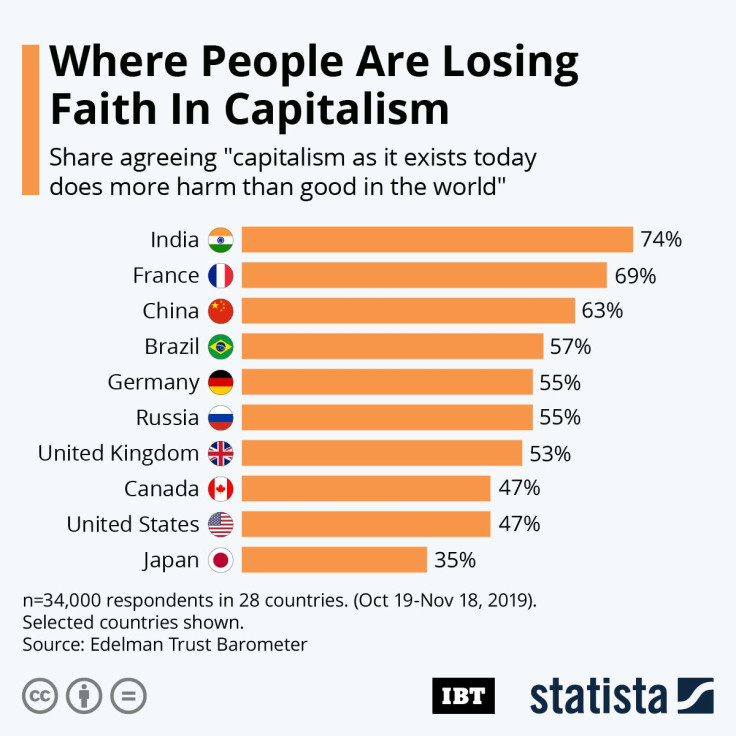Infographic: Where People Are Losing Faith In Capitalism

For the past two decades, "The Edelman Trust Barometer" has polled thousands of people about their trust levels in core institutions and the latest edition of the survey found that there is a distinct feeling of pessimism around the world today. In 15 of the 28 markets surveyed, a majority of people said they are pessimistic about their economic prospects over the coming five years. Despite a strong economy and near full employment, none of the core societal institutions in the survey - government, business, NGOs and the media - were trusted. Notably, the study also found that a majority of respondents are losing faith in the capitalist system.
56 percent of respondents agreed that capitalism "is doing more harm than good in its current form" and there was a majority of dissatisfaction in 22 of the 28 markets in the study. The following infographic highlights the situation in a selection of key countries. India has the highest levels of frustration with capitalism after Thailand and 74 percent of its respondents agree with the above assertion. France had a turbulent 2019 characterized by protests and paralyzing strikes that fueled the population's grievances. Unsurprisingly, Edelman uncovered high levels of frustration with capitalism with 69 percent agreeing it does more harm than good in the world.
Some countries have more faith in the system, especially in North America where less, 47 percent in both the U.S. and Canada, agree with the statement. In Japan, critical feelings about capitalism are even lower at 35 percent. Edelman found that global cynicism about capitalism and concerns regarding the fairness of our current economic system are resulting in deep-rooted fears about the future. 83 percent of people in the markets surveyed are afraid they will lose their job, attributing that fear to several factors such as automation, the fragility of working in the gig economy and the risk of a recession.




















